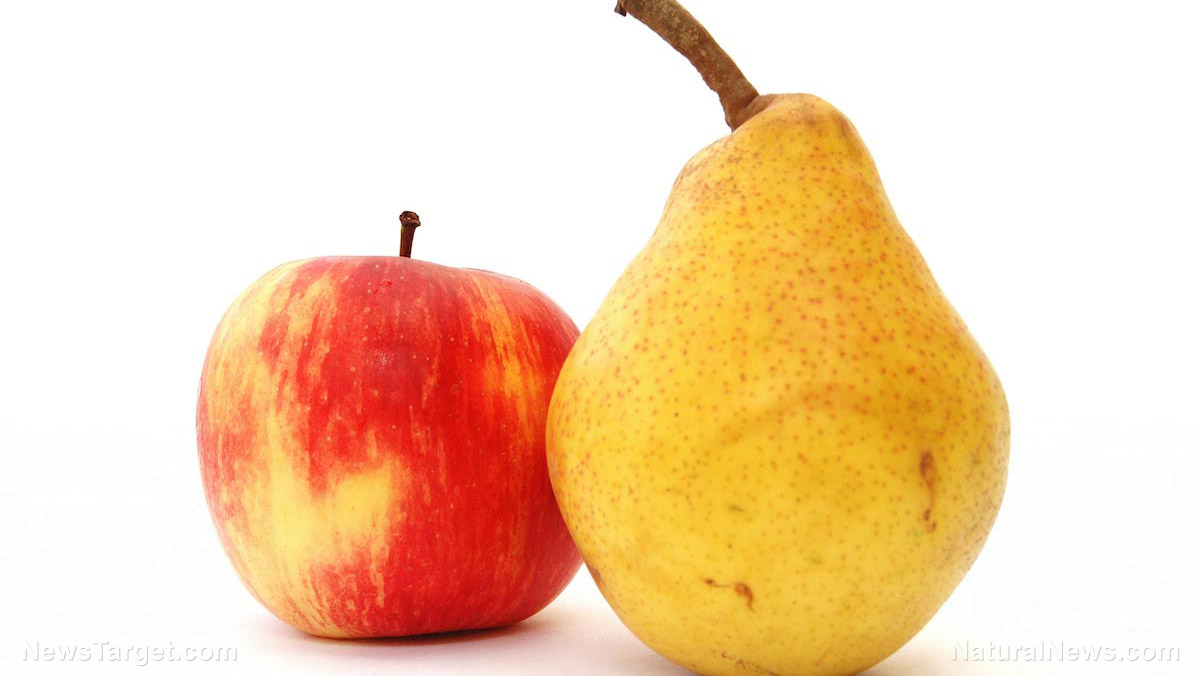by Michelle Simmons
Type 2 diabetes is on the rise, but this chronic disease can be prevented with the help of dietary and lifestyle changes. A study published in the journal Food & Function suggested that eating apples and pears can cut your risk of this dreaded disease.
Researchers at Zhejiang University in China carried out a meta-analysis to determine the effect of apple and pear consumption on the risk of Type 2 diabetes. To do this, they gathered studies, literature reviews, and meta-analyses from journal databases that looked at the consumption of apple and/or pear in association with Type 2 diabetes. All included studies used a validated food frequency questionnaire.
The researchers reviewed five studies with a total of 228,215 participants, of which 14,120 have developed Type 2 diabetes. They also converted all consumption data into servings per week using a standard portion size of 106 grams per week.
The researchers found that the consumption of apples and pears was associated with a significant decrease in Type 2 diabetes risk – an 18 percent reduction. In addition, they found a dose-response relationship between apple and pear consumption and Type 2 diabetes risk. In particular, one, two, three, four, and five servings per week corresponded to respective reductions of three percent, eight percent, 12 percent, 15 percent, and 19 percent in Type 2 diabetes risk, respectively.
They believe that the protective effect of apples and pears against this chronic disease may be attributed to the fruits’ polyphenols, which have powerful antioxidant effects; soluble fiber, which slows gastric emptying, reduces postprandial blood sugar spikes, and is associated with reduced hyperinsulinemia; and other phytochemicals that may fight inflammation.
Based on these results, the researchers concluded that eating apples and pears was significantly associated with a lower risk of developing Type 2 diabetes. This finding is important because apples and pears are two of the most commonly consumed fruits around the world. In addition, these fruits also offer many beneficial compounds to the diet.
Preventing diabetes with whole fruits
Another study, which was published in the BMJ, also revealed that eating whole fruits can lower the risk of developing Type 2 diabetes. However, there are certain fruits that are more effective than others at preventing the disease.
Carried out by a team of researchers from Harvard University, the study used data from three long-running health studies that included 151,209 women and 36,173 men where the participants answered questionnaires about their lifestyle, diet, and health — particularly any diseases they’d developed — every few years for at least two decades. The Harvard researchers asked about 10 fruits, including apples or pears, bananas, blueberries, cantaloupe, grapes or raisins, grapefruit, oranges, peaches, plums or apricots, prunes, and strawberries.
The results revealed that blueberries were the most effective in warding off diabetes. Grapes came in second most effective, followed by apples. Bananas and grapefruit were also good in preventing diabetes, while strawberries did not have much of an effect. Cantaloupe, on the contrary, slightly increased the risk for Type 2 diabetes.
The researchers also explored the effect of fruit juice consumption and found that drinking all kinds of fruit juice, including apple, grapefruit, and orange, was associated with a higher risk of the disease. However, replacing three servings of fruit juice per week with blueberries reduced the risk of the disease by an average of 33 percent.
Lastly, the researchers suggested that the protective effect of blueberries, red grapes, and apples against Type 2 diabetes can be attributed to their high content of anthocyanins, which have been reported to increase glucose uptake in mice with diabetes.
When eating fruits, make sure that they are organic and free of pesticides. Strawberries, apples, grapes, peaches, and pears belong to the Environmental Working Group‘s (EWG) 2019 Dirty Dozen list of fruits and vegetables that contain pesticide residues. (Related: Make a list and check it twice: “Dirty Dozen” list of fruits and vegetables CONTAMINATED with pesticide residue).
Learn more on how to ward off diabetes by going to PreventDiabetes.news.
Sources include:
CMS.HerbalGram.org
BusinessInsider.com



